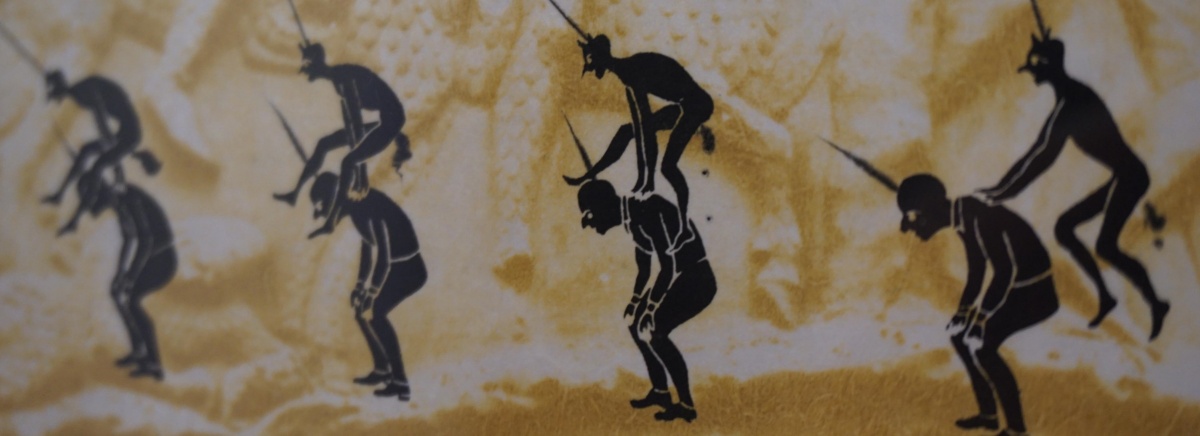In 1955, when the writer Ty Whitely was just a boy playing whist with his mum on the veranda of his family’s disgustingly opulent home, a sturdy breeze blew in, toppling the rose trellises which Whitely and his mother so admired. Their gardener, who earned only pennies a day, rushed to the rescue, and in the process of wrestling the contraption, sprained his ankle. The gardener’s shriek rang out “like a caged lion with a thorn in its paw.” An entirely similar scene happens in Whitley’s massively best-selling novel “The Whole of England” (later a wildly popular BBC television series and feature film, read and studied in high school classrooms and Universities until, mmm, only somewhat recently, when it has fallen out of favor). Chaz Thornburry, the novel’s naive and privileged protagonist, rushes to the aide of the lawn-servant Grundy O’Connell, who falls while trying to right a windmill on the expansive lawn of the Thornburry estate. “No, Chaz!” yells Lady Thornburry. “Leave him be. Grundy is poor, and therefore not deserving of our help. He can fetch an ice pack from town but only if he takes the horse cart and pays for his own horse-oats.” This theme of economic disparity would pervade Whitely’s entire body of work—all seven novels, two novellas, three volumes of journals, poetry, and correspondence, and the plays that comprise the Somerset Quartet. It is a theme which haunted Whitely and was worthy of many readers at the time but which now we are obliged to discredit.
“A Whole Lot of Bluster: The Life and Shameful Times of Ty Whitely,” the new biography of old-timey writer Ty Whitely (Revisionist History Press, $28), by Kell Darlinberg comes out this month, and, boy, did Darlinberg get it right. Whitely has come under increasing scrutiny since his death, in 1998, of cirrhosis of the liver, for both his political views and his questionable position as a man of letters and native of an Anglocentric country populated with Anglocentric institutions, many of which had ties to the British imperial government, who were a bunch of colonizing pricks. I’m here to pen this ostensible book review in hopes of securing my position on that ever-narrowing ledge called “the right side of history.”
Let’s rush things along and get to the disparaging, disowning part, shall we? Whitely was born in some town and went to a school that was expensive, and this we must regard as despicable now, because wealth, we know, invariably makes moral clarity impossible. He was an early reader of several philosophers, themselves suspect: with most of them, a hop, skip and a jump through their little black books, or old-timey Rolodexes, and you land right in the lap of someone like Der Fuehrer himself. So fuck this guy and his upbringing. This is not the kind of person we want representing the literary arts, that much is clear, and Darlinberg adroitly recounts the many mistakes Whitely made in his thinking and actions throughout his ill-conceived life. For example, choosing to record, in his journals, his early love for Penelope Rosewater (also a Caucasian and so not very sympathetic figure by today’s criteria). What a joke.
I basically want to endorse erasing Whitely entirely from whatever annals he’s in. I’m for pulling extant copies of his novels. I’m for commissioning a rewrite of “The Whole of England” from Grundy’s point-of-view. Whatever it takes. There were some awards he was given in the sixties. There’s no reason we can’t just do a new ceremony. It wouldn’t take that long or cost that much.
At age 25 Whitely had so much opportunity compared to what others had, it’s sickening, and he probably didn’t even appreciate it. His father got him a job as an records keeper for the London woolen mill called Thackleson’s. There he worked by day, and at night wrote his novels. Like Herman Hesse and Anthony Powell, Whitely was devoted to his craft, and could churn out a decent sentence, and that was once seen as admirable, and people were willing to give him a shot, but Darlinberg is correct and valiant to name Whitely’s style of storytelling “narrow and self-important.” Indeed, when other writers from more recent time periods do the same from their point of view, the fact that these works are contemporary ensures their correctness, as far as I, a literary critic, can discern. The current attitudes of out-sized humility and paralyzing anxiety over race issues, gender norms, and so on, clearly constitutes a need for a new canon, one that will be everlasting and never subject to reconsideration. Let me be the first to applaud the wiping of the proverbial slate. Craft and form can suck it. Whoever suffers the most injustices wins. Their story is best and the most important, forever, no backs.
And so, in conclusion, Ty Whitely equals an embarrassing period in our cultural history, and please just let me keep my job, please. I’ll do anything. I’ll mop the floors. It’s all I have now. It is my “Whole of England.” Wait—no! I didn’t say that!
I didn’t say that!

